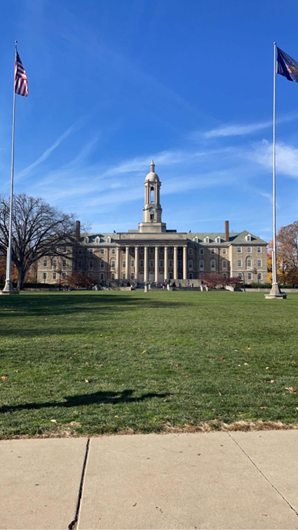A Coffee Craving
Picture of coffee and a coffee cup (Chase Fisher’s kitchen)
As the second most consumed drink, coffee is a significant part of millions of Americans’ lives. While most unknowingly drink coffee for the thought of health benefits, coffee consistently has shown to have adverse effects on the human body. Research shows that coffee has a net negative effect on humans.
Coffee shows many medical benefits against short and long-term diseases. Parkinson’s, heart attacks, type two diabetes, and liver diseases have been shown to decrease in people who are consistent coffee drinkers (Mayo Clinic). Coffee contains antioxidants and other active substances that aid in disease protection and reduce liver inflammation (Harvard). Additionally, coffee has shown mental benefits for moderate drinkers (2-3 cups a day). Depression and suicide have been shown to drop by 45 percent (compared to non-coffee drinkers) for those who drank over two cups per day and by over 53 percent (compared to non-coffee drinkers) for those who drank over four (Hopkins). Along with the health benefits, coffee is linked with increased productivity by boosting cognitive function and lightening the mood (entrepreneur). Mark Campione, a Central Bucks West High School teacher, stated, “For the most part, I rely on my coffee to just wake me up in the morning. I feel more engaged with my students when I have my coffee.” Campione is consistent with many Americans as they work at a higher performance level after consuming coffee.
The biggest concern revolving around daily coffee consumption is the dependence/addiction it can create. Like any other drug, coffee has addictive properties that can lead to physical dependence (Addiction Center). The caffeine from coffee goes through the small intestine into the bloodstream, which is sent to the brain. It then blocks the brain receptors, which produces a feeling of tiredness. Over time, the brain will develop more receptors, requiring more caffeine to get the same energized feeling (Addiction Center). This creates a treadmill effect that will continue as time goes on. As the addiction to coffee grows more potent, so do the symptoms. Coffee drinkers can experience higher amounts of anxiety, restlessness, insomnia, and increased heart rate (MedicineNet). Stopping drinking coffee is like quitting any other drug. Sudden stoppage can cause headaches, fatigue, anxiety, and low mood (Addiction center). In addition to negative health effects, coffee does not come for free. The average American spends $1,100 a year drinking coffee (Addiction center). Michelle Cramer, an Andesa Services actuary, stated, “I don’t think the cost is worth it every day. If you get enough sleep, you should be ready for the day.”
Before drinking coffee, look to see if you can change your sleep schedule to better your energy levels. Try to find alternatives rather than relying on coffee for your daily energy. If you already drink coffee, try and cut back on your usage slowly to minimize health effects.
Tommy Cramer, Grade 12. Interests/hobbies include motor vehicle riding, cooking, piano, golf, basketball, car rides with my friends, and traveling with...
Chase Fisher, Grade 12, Interests/hobbies include sports, NHS, writing, and hanging out with friends and family. Chase plans to attend Penn State University...










